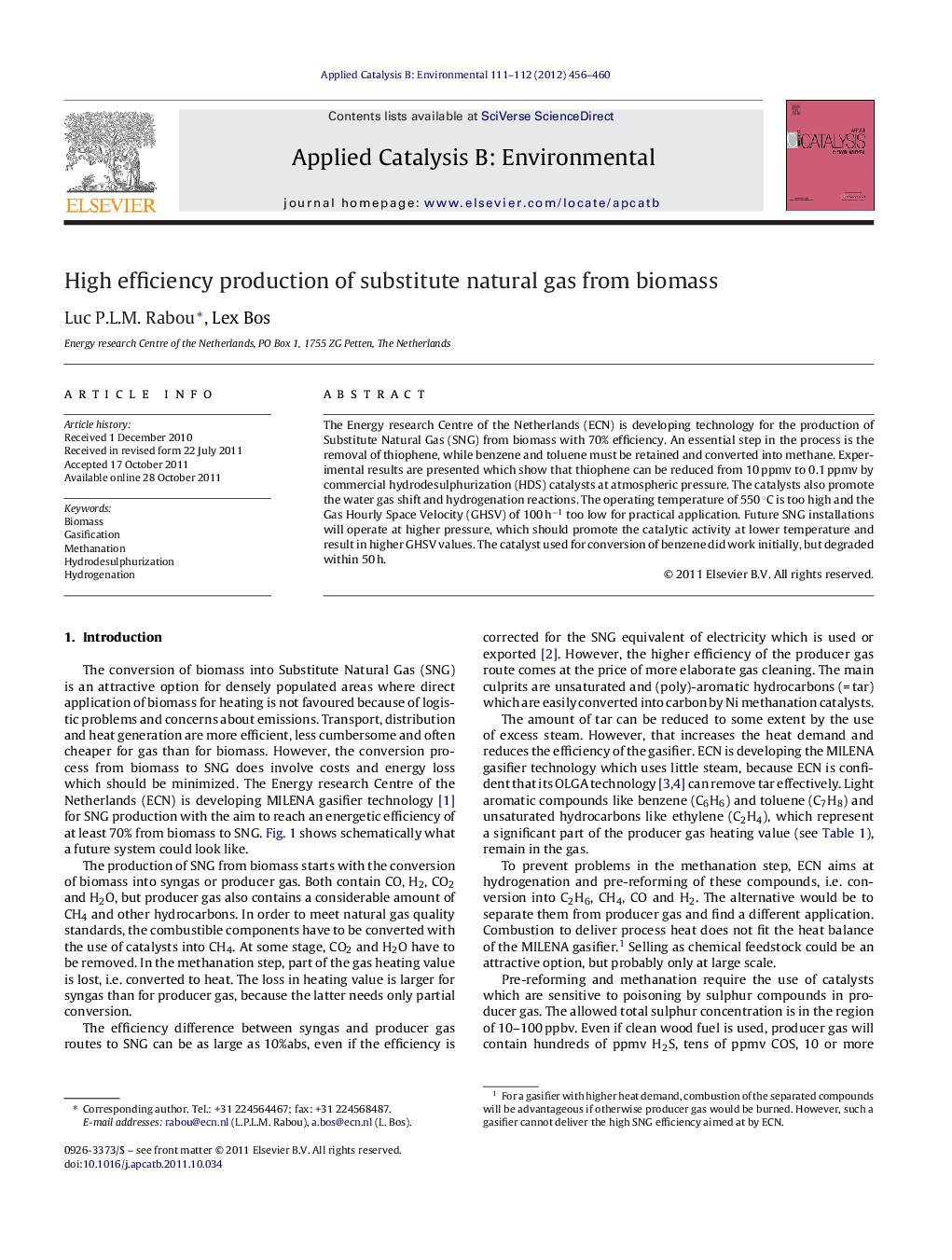| Article ID | Journal | Published Year | Pages | File Type |
|---|---|---|---|---|
| 46494 | Applied Catalysis B: Environmental | 2012 | 5 Pages |
The Energy research Centre of the Netherlands (ECN) is developing technology for the production of Substitute Natural Gas (SNG) from biomass with 70% efficiency. An essential step in the process is the removal of thiophene, while benzene and toluene must be retained and converted into methane. Experimental results are presented which show that thiophene can be reduced from 10 ppmv to 0.1 ppmv by commercial hydrodesulphurization (HDS) catalysts at atmospheric pressure. The catalysts also promote the water gas shift and hydrogenation reactions. The operating temperature of 550 °C is too high and the Gas Hourly Space Velocity (GHSV) of 100 h−1 too low for practical application. Future SNG installations will operate at higher pressure, which should promote the catalytic activity at lower temperature and result in higher GHSV values. The catalyst used for conversion of benzene did work initially, but degraded within 50 h.
Graphical abstractFigure optionsDownload full-size imageDownload as PowerPoint slideHighlights► Production of SNG from biomass through gasification at 800–900 °C. ► Conversion of biomass producer gas requires removal of 10 ppmv thiophene. ► Benzene and ethylene must be converted to methane to obtain high efficiency. ► HDS of thiophene in biomass producer gas is possible at atmospheric pressure. ► HDS catalyst also promotes water–gas shift and hydrogenation of ethylene.
